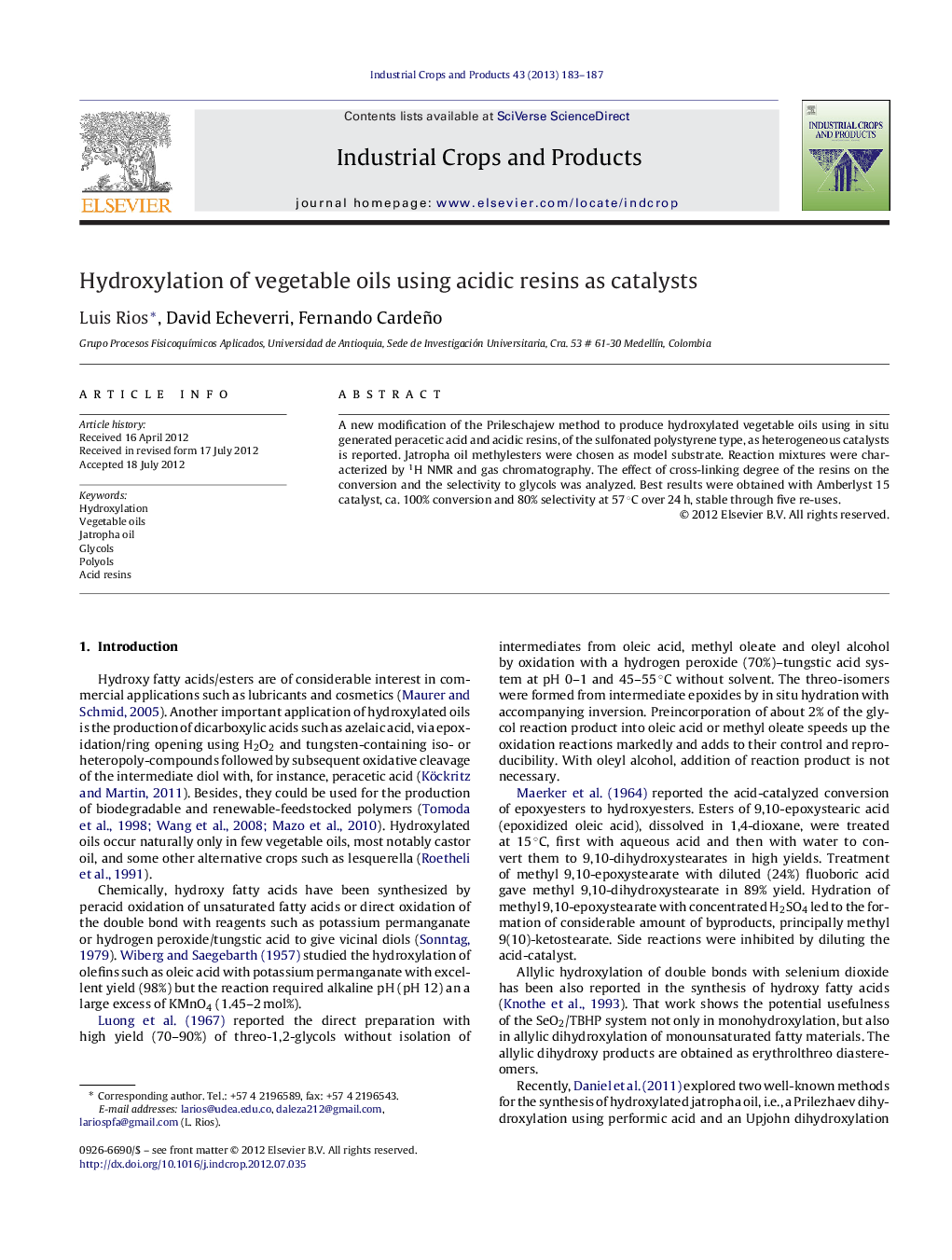| Article ID | Journal | Published Year | Pages | File Type |
|---|---|---|---|---|
| 4514114 | Industrial Crops and Products | 2013 | 5 Pages |
A new modification of the Prileschajew method to produce hydroxylated vegetable oils using in situ generated peracetic acid and acidic resins, of the sulfonated polystyrene type, as heterogeneous catalysts is reported. Jatropha oil methylesters were chosen as model substrate. Reaction mixtures were characterized by 1H NMR and gas chromatography. The effect of cross-linking degree of the resins on the conversion and the selectivity to glycols was analyzed. Best results were obtained with Amberlyst 15 catalyst, ca. 100% conversion and 80% selectivity at 57 °C over 24 h, stable through five re-uses.
► Acidic resins are suitable catalysts for the hydroxylation of vegetable oils. ► Selectivity depends on the resin cross-linking and morphology. ► Formation of glycols is improved by exposing the epoxides to the acidic sites. ► Resins with low cross-linking and/or high external surface area are preferred. ► Amberlyst 15 gave ca. 100% conversion and 80% selectivity, stable during five reuses.
